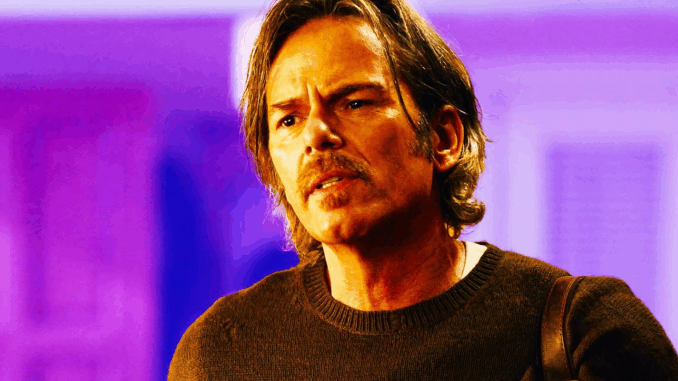
Vince Leone (Billy Burke) has always been the steady hand in the storm. As Battalion Chief, he commands respect, but it’s his role as father — to both Bode and his Cal Fire crew — that gives him emotional gravity. Season 4 pulls back the curtain on Vince, revealing a man torn between duty and guilt, leadership and loss.
The season opens with Vince struggling to reconnect with Bode after his release. Their relationship, always strained, now must be rebuilt on fragile trust. Vince wants to believe in his son, but he also bears the scars of past disappointments. Instead of sweeping this conflict under the rug, the show leans into it — letting Vince wrestle with anger, pride, and love in equal measure.
Professionally, Vince faces political pressure from Cal Fire leadership. Budget cuts, media scrutiny, and an uptick in natural disasters test his ethics. When asked to make decisions that protect optics instead of lives, Vince pushes back — sometimes at great cost. This ethical rigidity defines him. He’s not a rule-breaker, but he won’t sacrifice integrity for convenience.

One of the most powerful subplots involves Vince mentoring a young, reckless recruit who reminds him of Bode. Through this mentorship, Vince gets a second chance — not to rewrite history, but to influence the future. His conversations with this recruit mirror his inner monologue, offering insight into regrets he rarely voices aloud.
Vince is not a man of many words, but when he speaks, it lands. Whether he’s calming a panicked firefighter or confronting a superior who puts profit over people, Vince’s leadership comes from values, not volume. He’s not just a figure of authority — he’s a moral compass.
Season 4 gives Vince the dimension he deserves. He’s not just the stoic dad or the seasoned chief — he’s a man haunted by the past, uncertain about the future, but unwavering in the present. And that quiet resilience makes him one of Fire Country’s most enduring characters.
